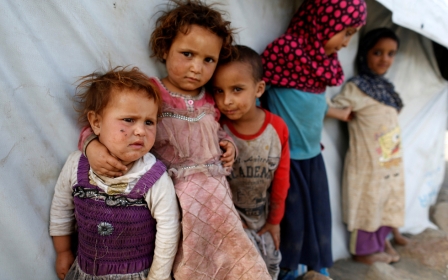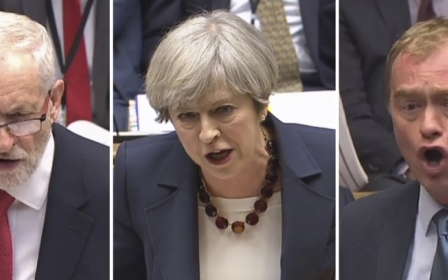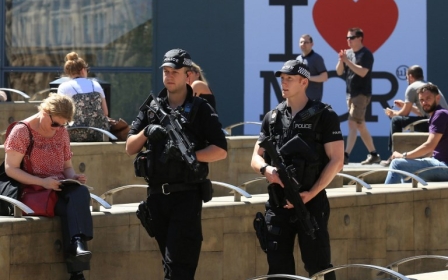Labour launches plan to tackle Islamophobia and anti-Semitism
The UK's opposition Labour Party has laid out a manifesto to combat Islamophobia and anti-Semitism, in the run-up to a general election on 8 June.
In a document called the Race and Faith Manifesto published on Tuesday afternoon, the party sets out a number of proposed measures to combat "a recent rise in hate crimes, including anti-Semitic, Islamophobic attacks and increased attacks against other faith communities."
"Theresa May and the Conservatives have failed to stand up for race equality," reads the document. "Their policies in government have turned back the clock, with black, Asian and minority ethnic communities being denied opportunities to flourish and succeed."
The manifesto promises to adopt the International Holocaust Remembrance Alliance's “working definition” of anti-Semitism as “a certain perception of Jews, which may be expressed as hatred toward Jews. Rhetorical and physical manifestations of anti-Semitism are directed toward Jewish or non-Jewish individuals and/or their property, toward Jewish community institutions and religious facilities.”
Labour leader Jeremy Corbyn, a staunch supporter of the Palestinian people, has regularly faced accusations of tolerating anti-Semitism within the ranks of his party and of providing support for the Gaza-based Hamas organisation.
Last year, the party carried out an internal investigation into the prevalance of anti-Semitism within the party, following controversial comments by former Labour mayor of London Ken Livingstone in which he claimed that Hitler had supported Zionism.
The manifesto also criticises the controversial Prevent programme for tackling "extremism" claiming that it damages "community cohesion". The party has promised to review Prevent if it enters office.
"Labour will review Prevent with a view to assessing both its effectiveness and its potential to alienate minority communities," it said.
"We will address the Conservatives’ failure to take any effective new measures against a growing problem of extreme or violent radicalisation."
The UK is still recovering from a bomb attack at Manchester Arena last week which killed 22 people and raised concerns about the existence of networks of radicalised militants among the country's Muslim community.
Corbyn has been keen to stress the need for unity and highlighted the role of British foreign policy in creating a rise in militant activity, especially following the intervention in Libya which overthrew the government of Muammar Gaddafi.
Salman Abedi, the man responisble for carrying out the bombing, was a member of Manchester's Libyan community and is believed to have travelled at the age of 16 to Libya in 2011 during the uprising against Gaddafi.
"Soldiers will only be deployed when there is a clear need and only when... there is a plan that delivers lasting peace," said Corbyn, in a speech four days after the Manchester attack.
He added: "Many experts, including professionals in our intelligence and security services, have pointed to the connections between wars our government has supported or fought in other countries and terrorism here at home."
The launch of the manifesto comes as a poll for the Jewish Chronicle newspaper found that just 13 percent of British Jewish voters plan to vote for Jeremy Corbyn’s Labour Party next week.
The poll found that the Conservative Party has the support of 77 percent of Jewish voters.
Labour has gained 4.5 percent among Jewish voters since May 2016, when the same questions was asked in the wake of months of suspensions of party members amid allegations of anti-Semitism.
Of the three major parties, it is seen as having the biggest problem with anti-Semitism, according to the newspaper.
Ahead of the 2015 general election, 18 per cent of the community pledged support for Labour under Ed Miliband’s leadership.
New MEE newsletter: Jerusalem Dispatch
Sign up to get the latest insights and analysis on Israel-Palestine, alongside Turkey Unpacked and other MEE newsletters
Middle East Eye delivers independent and unrivalled coverage and analysis of the Middle East, North Africa and beyond. To learn more about republishing this content and the associated fees, please fill out this form. More about MEE can be found here.




